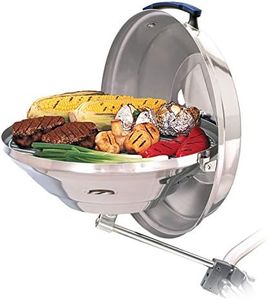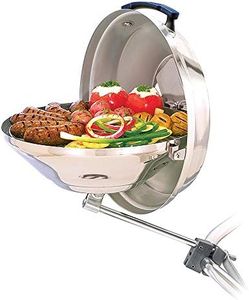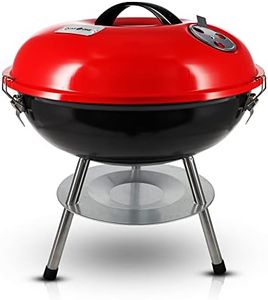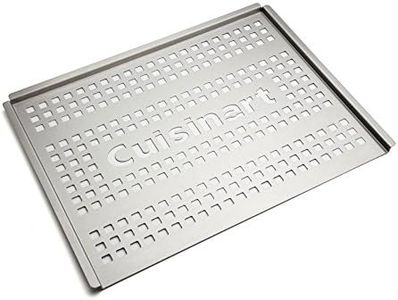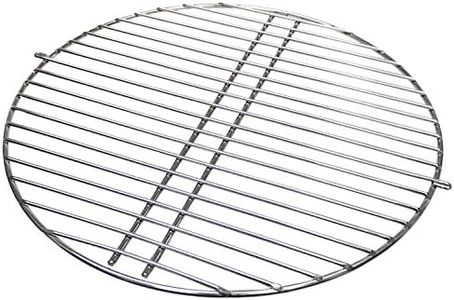We Use CookiesWe use cookies to enhance the security, performance,
functionality and for analytical and promotional activities. By continuing to browse this site you
are agreeing to our privacy policy
6 Best Pontoon Boat Grill
From leading brands and best sellers available on the web.Buying Guide for the Best Pontoon Boat Grill
Choosing the right grill for your pontoon boat can make your time on the water even more enjoyable, allowing you to cook meals while you cruise or relax. The key is to find a grill that is safe, durable, easy to use, and suitable for boating conditions. Because space is limited and safety is a bigger concern on a boat, it's essential to look for a grill specifically designed for marine use. Think about how often you plan to grill, the types of meals you'll prepare, and how many people you typically cook for. Each of these factors will help you decide on the best features for your pontoon boat grill.Fuel TypeFuel type refers to what powers the grill—generally propane, charcoal, or electric. Propane grills are popular for pontoon boats because they're convenient, easy to light, and quick to heat up. Charcoal grills give food a classic smoky flavor, but they're less convenient and can be messier. Electric grills are easy to use, but they require a reliable power source, which may not always be available on a pontoon. Think about how much convenience, flavor, and access to fuel or power you want. If you prefer hassle-free grilling, go for propane. If you love smoky flavors and don’t mind a bit of cleanup, charcoal could be your pick. Consider electric if your boat has reliable electrical outlets.
Mounting SystemThe mounting system is how the grill attaches to your pontoon boat. Some grills have rail mounts, others use pedestal mounts, and some are simply tabletop models. Rail mounts attach securely to your boat's railing, saving space and ensuring the grill stays in place even when the boat moves. Pedestal mounts can be more secure but may require permanent installation. Tabletop grills are portable but need to be placed on a stable surface. Choose a mounting option based on your boat's deck space, how permanent you want the installation to be, and your safety concerns. A rail mount is often best for maximizing safety and space.
Grill Size and Cooking SurfaceGrill size relates to how much food you can cook at once, usually measured by the area of the cooking surface. Smaller grills are easier to store but can only handle a few burgers at a time, while larger ones let you cook for the whole crew but require more deck space. Consider how many people you usually cook for. For solo outings or couples, a compact grill is enough. For families or groups, opt for a larger cooking area but make sure it fits comfortably on your boat.
Material and DurabilityThe materials used in the grill’s construction determine how well it stands up to the marine environment. Marine-grade stainless steel is popular because it resists rust and corrosion from exposure to water and salt. Some grills use coated metals or aluminum, but they may not last as long. If you want a long-lasting grill that requires less maintenance, look for one made from heavy-duty stainless steel, especially if you boat in saltwater.
Safety FeaturesSafety features on pontoon boat grills can include secure locking lids, sturdy legs or mounts, and wind guards to prevent flare-ups. Since cooking on a boat has unique risks, features that keep the grill stable and prevent fires are extra important. Look for grills with good wind protection, locking mechanisms, and solid attachment points. If you plan to grill while the boat is moving or in windy conditions, these safety features become even more important.
Ease of CleaningAfter grilling, cleaning is often a chore, but some grills are designed with removable drip trays and grates that make cleanup easy. If you want to spend less time cleaning and more time relaxing, look for a grill with simple, removable parts that can be cleaned quickly. This is especially important on a boat, where water and cleaning resources might be limited.
